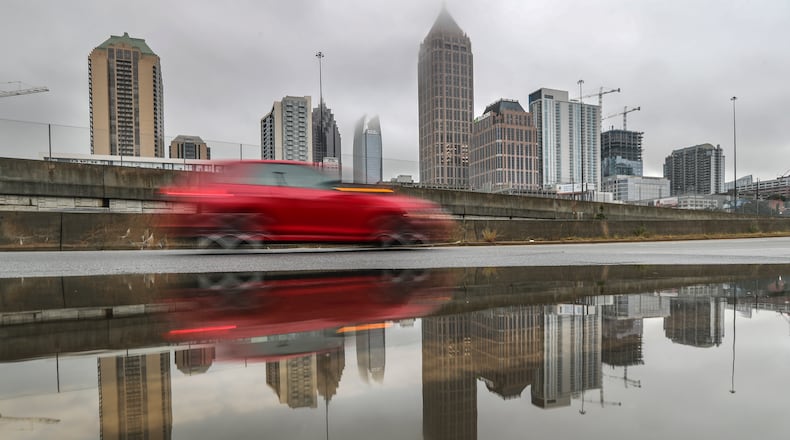A prominent business group in Midtown is asking the city to change the way it manages transportation projects after enduring years of delays that could put crucial federal funding at risk.
In a letter to Mayor Keisha Lance Bottoms obtained by The Atlanta Journal-Constitution, Midtown Alliance President and CEO Kevin Green wrote that the “level of city inaction and dysfunction we are experiencing is the worst we have seen in two decades.”
“The current situation is untenable,” wrote Green, whose organization is made up of business and community leaders in Midtown, one of Atlanta’s residential and business hubs.
In the July 30 letter, Green pointed to the Juniper Complete Street Project, a plan to add a protected bike lane and improve the sidewalks for 12 blocks along Juniper, from 14th Street to Ponce de Leon Avenue. That project, Green said, is more than 10 years old and is at risk of exceeding a spend-by deadline for federal funds, “due to repeated and avoidable city delays.”
He said the city is at risk of losing almost $7 million in federal funds intended for three stagnant projects in Midtown, including Juniper.
Credit: JOHN SPINK / AJC
Credit: JOHN SPINK / AJC
Many of the delays stem from the city’s procurement process, which involves selecting companies to plan or execute multimillion-dollar projects like road improvements, Green said.
The Midtown Alliance has a fully funded plan for safety improvements to more than 20 intersections in Midtown that has been in procurement since February 2019 with two failed solicitations for bids, the letter said.
Atlanta’s procurement department came under the microscope several years ago under former Mayor Kasim Reed’s administration, after several City Hall employees — including the former top purchasing officer — were convicted of accepting bribes from contractors looking to do business with the city. When Bottoms took office, she vowed to clean up procurement and implement safeguards to root out corruption.
Green proposed that the city allow community improvement districts to manage the contracts and project work in their areas, rather than the city. CIDs are self-taxing business districts in commercial parts of the city that often fund infrastructure improvements, sometimes with a mix of public tax dollars and private funds.
In a statement, a spokesman for the mayor’s office said the letter “does not provide the full context or accurately describe the current authorities” the CIDs have under city code. The city said under its agreement with the Midtown CID, the CID is not allowed to seek bids for public projects themselves.
“The current situation is untenable."
But city leaders plan to meet with the Midtown Alliance to discuss the path forward “to ultimately deliver timely, appropriately procured and well designed and constructed projects for our residents,” the spokesman said.
“We appreciate the desire to further coordinate and collaborate on solutions and appreciate the important role that CIDs have in projects and services.”
Reached for comment this week, Green said the letter “reflects our level of frustration with stalled transportation projects. ... It shouldn’t be this way.”
Councilman Amir Farokhi, whose district includes Midtown, said delays on transportation projects have become a citywide concern. He thought of several in his district alone that have been planned but not completed.
“Procurement needs to do things ethically and to best practices, and they also need to execute in a timely manner. And they have failed to do the latter with increasing alarm,” Farokhi said.
The councilman said he is working on city legislation that would allow some CIDs to handle procurement themselves.
With Congress considering a $1 trillion infrastructure package, which would provide billions for local road safety improvements, Green said it’s especially important that the city streamline its process for transportation projects.
“How can we say that our city is prepared to implement a large infusion of capital when it is not moving projects forward that are already on its plate and fully funded?” the letter said.
About the Author
Keep Reading
The Latest
Featured




